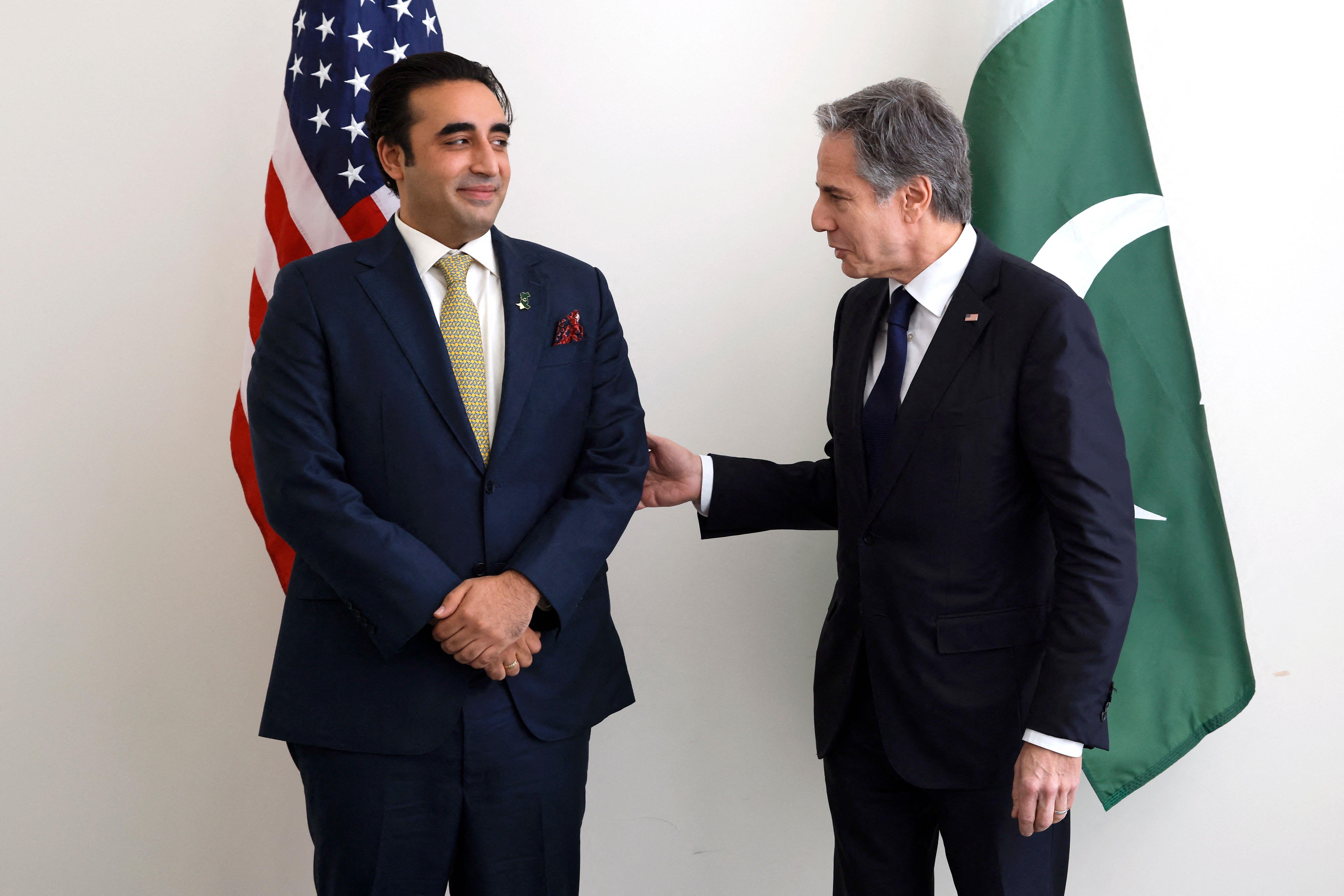
Recently, Germany’s Foreign Minister called for a UN role in resolving the Kashmir issue, raising India’s hackles. Earlier, the US had cleared the sale of $450 million F-16 aircraft equipment to Pakistan. Riyaz Wani looks at the reason behind the apparent shift in US stance on Pakistan.
Germany’s foreign minister Annalena Baerbock on October 7 called for UN role in resolving the Kashmir issue while praising the LoC ceasefire of February 2021 at a joint press conference with Pakistan foreign minister Bilawal Bhutto in Bonn. India took strong exception to Baerbock’s statement and urged Germany to focus instead on the cross-border terrorism sponsored by Pakistan in Kashmir.
German foreign minister’s statement was met with surprise in India and is being seen of a piece with the newfound warmth between the west and Pakistan. This shift became apparent by the sudden rekindling of the US-Pakistan ties in the recent past. It was evident when recently the US state department spokesman Ned Price said that both India and Pakistan were US partners, in response to the External Affairs Minister S Jaishankar raising questions over the “merits” of the US-Pakistan relationship.
What is more, the warmth has been visible in the interactions between US Secretary of State Antony Blinken and Pakistani foreign minister Bilawal Bhutto. Earlier in September, the US State Department approved a Foreign Military Sale (FMS) to Pakistan for the sustainability of the Pakistan Air Force F-16 fleet and equipment at the cost of $450 million.
Though the tilt towards India is still there, in recent months, the US has made an effort to accommodate Pakistan which under Imran Khan was threatening to draw closer to the China-Russia axis. But with Khan’s loss of power in a no-confidence vote which he blames on the US, Washington has sought to repair its otherwise frayed relations with Islamabad and has also begun to respond to its concerns. And going by Price’s statement, the US may also be playing a furtive role to get India and Pakistan to restore engagement.
“We also want to do everything we can to see to it that these neighbours have relations with one another that are as constructive as possible. And so that’s another point of emphasis,” Price said as part of his response to Jaishankar’s criticism.
Also, the US envoy to Pakistan, Donald Blome toured Pakistan Occupied Kashmir and held meetings there with government officials and civil society. In tweets, the Embassy of the United States in Pakistan referred to the occupied territory as “AJK” (Azad Jammu and Kashmir), echoing the Pakistani claim that it is the liberated part of Kashmir. On the contrary, New Delhi has had no ambassador in India for the last two years.
Developments like these have been a source of concern for New Delhi which sees it as a renewed appeasement of Pakistan. Many analysts in India see it as a punishment for India’s pursuit of an independent foreign policy in response to the ongoing war in Ukraine. Besides abstaining from western resolutions against Russia, India continues to import oil from the country at discounted rates, something that has not pleased the western countries.
Rather than join the western camp, India has sought to play a mediatory role in resolving the Ukraine crisis. Prime Minister Narendra Modi during his meeting with Russian president Vladimir Putin on the sidelines of the recent Shanghai Cooperation Organization meeting told him that “this is not an era of war” and that the Ukraine issue should be settled by diplomacy.
Although it is still early days, there are clear signs that the west is seeking Pakistan as an ally again, while holding on to its ties with India. But in doing so, they are running up against the age-old India-Pakistan rivalry and their divergent ideas of national interest.












